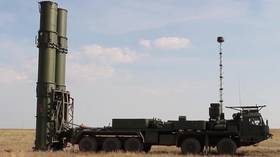Tourism hit by downturn but planning for rebound
Tourism is one of the industries that suffering most because of the economic slump. Only 1% of Russians are expected to spend their winter holidays at hotels, but officials have plans for developing the sector.
2009 has been a far from a relaxing year for Russia's tourism industry. Local tour operators have noted a decline in both inbound and outbound tourism, according to Vladimir Kaganer, General Director of Tez Tour.
“If we assume the crisis is over, I think that the return to pre-crisis tourism demand will take a minimum of 1 and a half to 2 years to be seen.”
The World Tourism Organization has forecast a 5% decline in global travel over 2009. Hardest hit – destinations in Central and Eastern Europe.
Russia's total land area is over 17 million square kilometers. But 95% of all foreign tourists that come to the country stick to Moscow, its surrounding Golden Ring, and St. Petersburg.
Those locations are known for high prices and an overall lack of economy-class hotels. And that makes Russia far less competitive than other destinations in Europe and elsewhere. But Aleksandr Arutyunov, President of Intourist Group, says the situation is spinning around.
“For the first time in the past 5 or 6 years serious price competition is taking place in the hotel sector. This is both within categories (3 and 4 stars) and between them. Prices are down and a client war is brewing.”
The government is mulling over a plan to spend over $3 billion to improve tourism infrastructure in regions like Baikal, Altai, and Karelia between 2011 and 2016. But what is ultimately key, industry insiders say, is making tourist information about Russian available to the international public.













